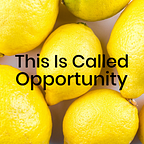Transparency Thursday | What Does ‘Sustainability’ Mean to Us
So… what exactly is sustainable fashion, anyway? If you have been thinking this to yourself, you are not alone. In fact, searches for those and related words increased by 42% in 2018.
Don’t get us wrong — we are very happy to see bossladies around the world starting to care about the way their clothes are made. But we also know that not everyone is exactly sure what this term really means.
For this installment of Transparency Thursday, we are laying out the j.jackman definition of sustainable fashion just for you.
Here goes.
First and foremost, we believe sustainable fashion means making and buying fabulous clothes that last. The average person in Germany throws out a new piece of clothing after just three years. That’s insane!
Our goal is to make statement pieces that you will love now and ten years from now (and with quality that lasts that long, too). Here at j.jackman, we are also into wearing a new piece many different times. Why not wear the same outfit if it’s a good one?
Sustainable Fashion also means responsible production in 3 ways
Now here is where things get real. We believe sustainable fashion means more than just getting a lot of wears out of your favorite sweater from the fast-fashion shop around the corner. It means making clothes responsibly.
We design and make all our j.jackman pieces under the same roof, right here in our Berlin atelier. The focus here, though, is on ethical and fair production. That means fair wages and good working conditions. We work directly with our team of seamstresses — not through a factory — so we can maintain a relationship with them. We pay our seamstresses roughly 2x the German minimum wage for the work they do.
Our fabulous pieces are made from quality fabrics from local mills, mostly in Italy, Spain, France, and Germany. That means a reduced carbon footprint because we are not shipping large rolls of fabric around the world. We also like to use almost only natural fibers because they are better for your skin and the environment. We can’t resist good organic cotton — we try to use it wherever possible. That’s because organic cotton is grown with little to no pesticides, which is better for the people who work with it. Most of our organic cotton is certified by GOTS, the Global Organic Textile Standard, and produced in Turkey or Portugal. The cotton that is not certified by GOTS is usually certified Fair Trade or Öko-Tex Standard 100.
Waste is the fashion industry’s open secret. We have all probably seen the headlines that millions worth of excess stock is being burned regularly. We want to avoid that. That’s why we produce in small batches, usually after an order comes in. We like to get creative with our design waste, too. “Design waste” for us is the left-over scraps after a garment is cut from a piece of fabric. We use these off-cuts and turn them into something new, like our exclusive j.jackman scarves.
We’ll be honest with you in the spirit of transparency — we are not perfect. We know there are areas we can be better, like using even more eco-friendly materials or incorporating recycling into our supply chain.
That is not the point, though. We like to focus on getting better instead of perfection. You may not start buying only sustainable fashion tomorrow, but starting to think about it today is already a big first step. To us, shopping “better” means being more conscious of the pieces you buy, in whatever way is most important to you.
Let us know what sustainable fashion means to you and how you shop for it in the comments.
For more installments of Transparency Thursday, make sure to follow us on Social Media.
Originally published at https://www.jjackman.com.
